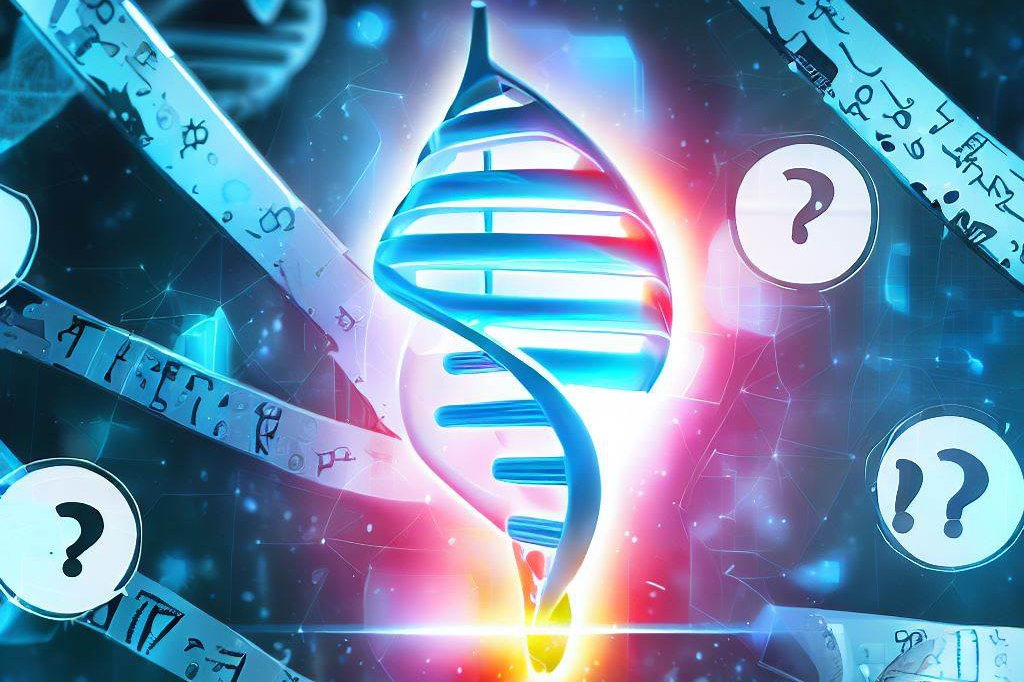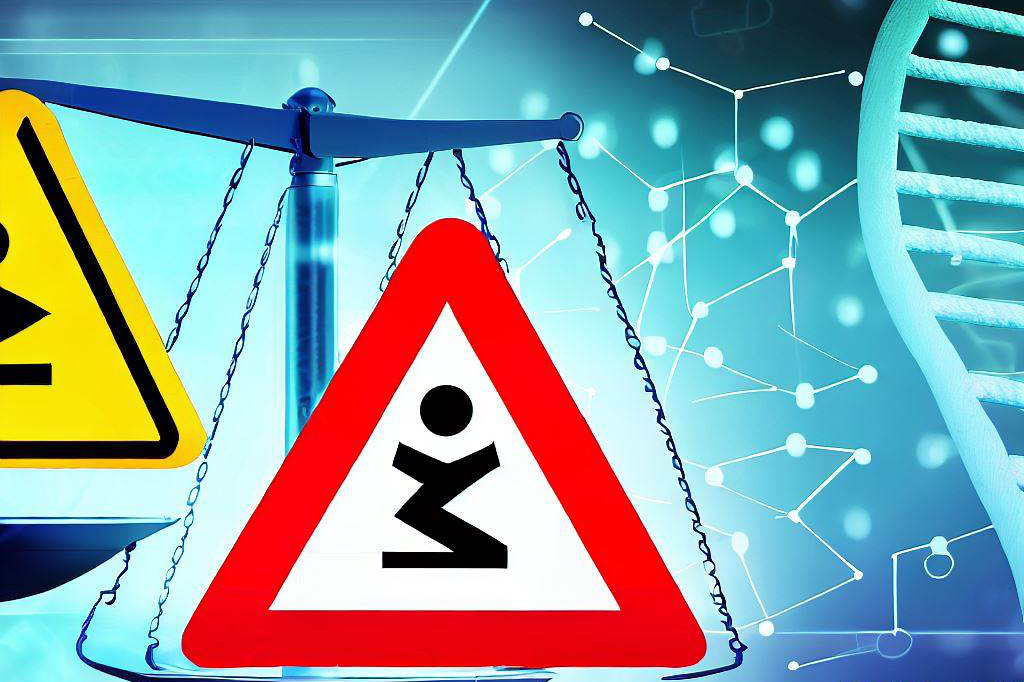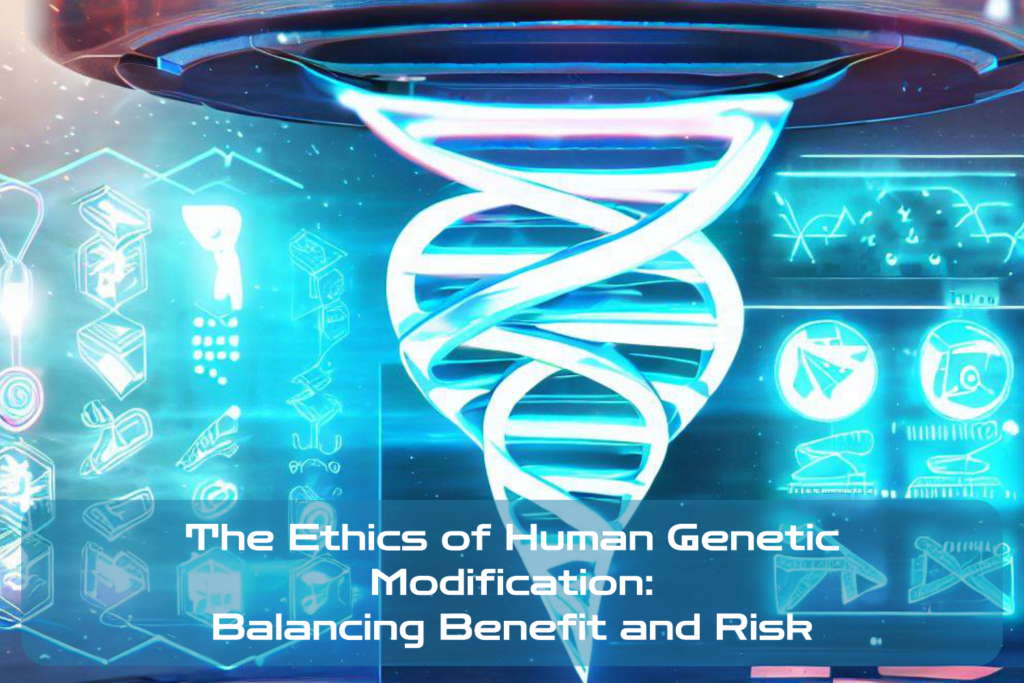Human genetic modification is a rapidly advancing field that has the potential to revolutionize medicine and improve the quality of life for millions of people. By altering an individual’s genetic code, scientists can prevent or treat diseases that are caused by genetic mutations.
For example, gene therapy has been used successfully to treat certain cancers, rare blood disorders, and inherited blindness.
However, human genetic modification raises a host of ethical concerns that must be carefully considered before widespread implementation. First and foremost is the question of whether it is morally acceptable to alter the fundamental characteristics that make us who we are.
Genetic modifications could potentially change not only an individual’s physical appearance but also their personality traits and cognitive abilities. Beyond these concerns about personal identity, there are broader societal implications to consider as well.
The possibility of creating a genetically elite class could further exacerbate existing inequalities in society and create new forms of discrimination. Additionally, there is always the risk of unintended consequences or negative side effects when manipulating genetics.
Potential Benefits
The potential benefits of human genetic modification are vast and varied.
One significant area where it could have an impact is in treating individuals with genetic diseases such as cystic fibrosis or sickle cell anemia. By altering specific genes responsible for these conditions, researchers hope to cure these diseases once and for all.
Genetic modifications could also enhance athletic performance by increasing muscle mass or improving endurance levels. This has significant implications for professional athletes who compete at the highest levels, but it also raises questions about fairness in competition.
Beyond physical abilities, researchers have explored how human genetic modification could potentially increase intelligence or cognitive function through alterations in genes related to brain development. While this may sound appealing on the surface, it raises important ethical questions around what constitutes “normal” intelligence levels and whether tinkering with genetics in this way is morally acceptable.
Ethical Concerns
There are a variety of ethical concerns surrounding human genetic modification beyond those related to personal identity and societal implications.
One area of concern is the possibility of unintended consequences or negative side effects when manipulating genetics. While researchers have made significant advances in recent years, there is still much we do not know about how genetics work, and the potential for unforeseen outcomes cannot be entirely ruled out.
Another worry is the creation of a genetically elite class. If only those who can afford genetic modifications have access to them, it could further entrench existing societal inequalities and create new forms of discrimination based on genetic makeup.
There are broader philosophical questions about altering the natural course of evolution. By manipulating genetics, we may be fundamentally changing what it means to be human and disrupting the delicate balance that has existed for millions of years.
Balancing Benefit and Risk
Given these ethical concerns, it is clear that any discussion around human genetic modification must consider both its potential benefits and risks. While there are undoubtedly positive uses for this technology, we must weigh these against potential negative consequences carefully.
One approach to balancing benefit and risk is through strict regulation. Governments could establish guidelines for when and how human genetic modification can occur to ensure safety and fair access to these technologies.
We also need ongoing research to understand the long-term effects on individuals, society, and the environment as a whole. Only by taking a comprehensive view can we make informed decisions about whether human genetic modification is an avenue worth pursuing in our quest for better health outcomes and improved quality of life.
Benefits of Human Genetic Modification

Improved Health Outcomes for Individuals with Genetic Diseases
Human genetic modification has the potential to significantly improve health outcomes for individuals with genetic diseases. Many genetic diseases are caused by mutations in specific genes, and gene editing techniques could provide a way to correct these mutations and alleviate disease symptoms.
For example, sickle cell anemia is a genetic disease that affects the production of hemoglobin in red blood cells.
This can lead to severe pain, organ damage, and a shortened lifespan. Using gene editing techniques, it may be possible to correct the mutation that causes sickle cell anemia and restore normal hemoglobin production.
Similarly, cystic fibrosis is a genetic disease that affects the lungs, digestive system, and other organs. Gene therapy could potentially provide a way to correct the faulty gene responsible for cystic fibrosis and improve lung function and overall health outcomes.
Enhanced Athletic Performance and Physical Abilities
Another potential benefit of human genetic modification is enhanced athletic performance and physical abilities. By manipulating genes associated with muscle growth or oxygen transport, it may be possible to enhance strength, endurance, or speed. However, this raises significant ethical concerns around creating a “genetic elite” class of athletes who have an unfair advantage over others.
Additionally, there could be unintended consequences or negative side effects from these enhancements that we don’t fully understand yet. It’s important to carefully consider the risks associated with enhancing physical abilities through genetic modification before pursuing this avenue further.
Increased Intelligence and Cognitive Function
One of the most intriguing potential benefits of human genetic modification is increased intelligence and cognitive function. By modifying genes associated with brain development or neurotransmitter production, it may be possible to enhance cognitive abilities such as memory retention or problem-solving skills.
However, there are many ethical considerations around this type of enhancement as well. For example, creating a “genetic elite” of individuals with enhanced intelligence could exacerbate existing social inequalities and create a new form of discrimination.
Additionally, we don’t fully understand the long-term effects of these modifications on the brain and overall health. While the potential benefits are certainly enticing, it’s essential to weigh them against the risks and ensure that any attempts to enhance intelligence through genetic modification are done in an ethical and responsible manner.
Potential for Longer Lifespan
Human genetic modification could potentially lead to longer lifespans by addressing age-related diseases or slowing down the aging process itself. By manipulating genes associated with cellular repair or telomere lengthening, it may be possible to improve overall health outcomes in older adults. However, this again raises ethical concerns around creating a “genetic elite” class of individuals who live longer than others.
Additionally, extending the lifespan could have significant societal consequences, such as increased strain on resources or changes to family structures. It’s important to consider both the potential benefits and risks associated with extending lifespan through genetic modification before pursuing this avenue further.
Risks of Human Genetic Modification

Unintended Consequences or Negative Side Effects
While the potential benefits of human genetic modification are vast, the risks associated with this technology cannot be ignored. One major concern is the possibility of unintended consequences or negative side effects as a result of genetic manipulation.
There have been cases where gene editing has led to unintended changes in other parts of an individual’s DNA, potentially causing new health problems that were not present before. Additionally, there could be genetic changes passed down to future generations that could have unforeseen consequences.
Another possible negative side effect is the creation of “superbugs” or viruses that are resistant to treatment due to their genetically modified nature. The ability to edit genes could also lead to new diseases that were not previously present in humans.
Creation of a Genetic Elite Class
Another ethical concern surrounding human genetic modification is the potential for creating a genetic elite class. If only certain individuals or groups can afford expensive genetic modifications, it could exacerbate existing inequalities and create societal divisions based on genetics rather than merit or hard work. This could also lead to discrimination against those who do not possess desirable traits or who cannot afford gene editing.
There is also a fear that such a divide could lead to eugenics-like practices in which individuals with “undesirable” traits are discriminated against and excluded from society. The idea of creating a genetically perfect human race raises serious ethical concerns and should be carefully considered before pursuing any type of widespread human genetic modification.
Ethical Concerns Around Altering the Natural Course of Evolution
One major ethical concern surrounding human genetic modification is the alteration of natural evolutionary processes. Some argue that altering our genetics goes against natural selection and interferes with evolutionary processes that have been occurring for millions of years.
Additionally, there are concerns about unknown consequences for the environment resulting from genetically modified organisms, and how this could impact the wider ecosystem. Furthermore, any changes made to our genetics are irreversible and could have long-term effects on individual health and wellbeing.
The decision to modify our genes is not one that should be taken lightly. Instead, the potential risks of human genetic modification must be carefully weighed against its potential benefits before any widespread use can be considered ethical.
Balancing Benefit and Risk in Ethical Considerations

Human genetic modification has the potential to significantly improve the quality of life for individuals and society as a whole. However, it also presents significant ethical concerns that must be addressed before it can be used widely. Balancing the potential benefits against the risks is an essential step in considering the ethical implications of human genetic modification.
Importance of weighing potential benefits against potential risks
The first step in balancing benefit and risk is to carefully weigh the potential advantages against the possible dangers.
Proponents argue that genetic modifications could prevent or cure debilitating diseases, increase intelligence, and enhance physical abilities.
However, these alterations could also have unintended negative side effects, including long-term health problems or discrimination against those who cannot afford such modifications.
It is necessary to evaluate each proposed modification and its intended benefits carefully before deciding whether or not it is worth pursuing.
Necessity for strict regulation to ensure safety and fairness in accessing genetic modifications
To balance benefit and risk effectively, there must be strict regulation surrounding human genetic modification. This regulation should ensure that all genetic modifications are safe for individuals undergoing them as well as society at large.
Furthermore, it should ensure equitable access to these modifications so that only those who will benefit from them receive them instead of just creating a new social class of ‘genetic elites’. Rigorous testing regimes should be put in place to determine whether proposed alterations pose any risks or unethical consequences.
In addition to safety measures, regulations must consider social justice concerns around accessibility. The affordability of these procedures cannot create further financial barriers between people with different socioeconomic statuses because one’s genetics would then become a determinant factor for success in life rather than their hard work or talents.
Need for ongoing research to understand long-term effects on individuals, society, and the environment
There is an urgent need for continued research to understand the long-term effects of human genetic modification. While initial trials may show promising results, there is no way to know with certainty what the long-term consequences might be, both for individuals undergoing modifications and society as a whole. Longitudinal studies must be conducted to evaluate the efficacy and safety of genetic modification over time.
Furthermore, research should assess how such modifications could impact our environment in terms of our food system or overall ecosystem by creating new species which could have unforeseen negative consequences. Although these issues might not appear relevant in current times, they could pose serious risks in the future.
Final Thoughts

The topic of human genetic modification is complex and requires a continuous conversation among scientists, policymakers, ethicists, healthcare providers, and patients alike.
Ethical considerations must be at the forefront when discussing this topic so that we can determine how best to proceed without causing harm.
Therefore, it is essential that continued dialogue take place surrounding this topic.
This includes addressing concerns about
- fairness in accessing these technologies;
- regulatory frameworks that ensure safety while promoting research into their effectiveness;
- education on genetics for patients so they understand implications before making decisions about their own health care choices;
- public debate over whether certain modifications should be allowed or not based on social factors like justice or equality (rather than just medical ones).
Ultimately, it is hoped that through increased understanding among stakeholders within society at large, we can arrive at an approach that balances benefit against risk fairly while respecting individual autonomy over their own bodies – potentially ushering in a new era where personalized medicine has become a reality for millions worldwide.

C M, a seasoned editor, journalist, and consultant, is deeply fascinated by the convergence of technology, space, and the future of humanity.
With a particular interest in transhumanism, futurology, and the philosophical and ethical dimensions of these domains, C M serves as the lead contributor to TranscendSphere and SpaceSpotlight.
When not penning insightful articles on these rapidly evolving fields, C M indulges in their love for podcasts and books, proudly embracing their status as a ‘Happy Nerd Extraordinaire!’





